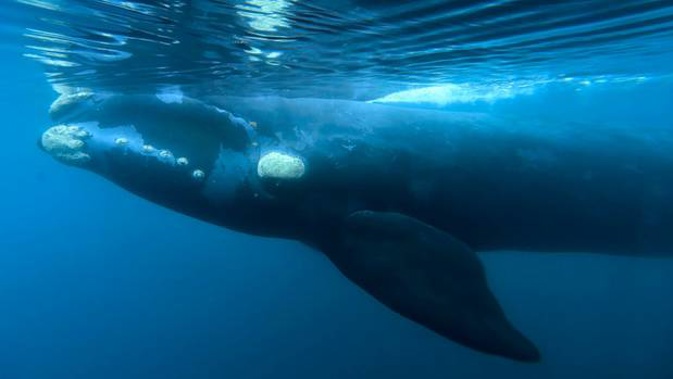
The oceans are loud and getting louder all the time, and marine mammals must live in the din.
These animals take different approaches to the noise — dolphins perform the equivalent of shouting, humpback whales, when competing with a nearby boat, go silent.
"A lot of people imagine underwater is this really quiet place, but it isn't," said biologist Helen Bailey, who studies marine mammals and sea turtles at the University of Maryland.
Ocean sounds are more than just crashing waves. Sharp noises, like sonar used in oil exploration or explosive navy war games, can damage whale ears. Busy cargo lanes thrum with ship traffic. And as the Arctic warms, allowing more ships and industrial developments in previously ice-locked regions, marine mammal populations are exposed to more noise.
Increasing ocean noise was identified as a potential problem more than 20 years ago.
Near California, the loudness of ship traffic has roughly doubled each decade since the 1960s. But the specific effects of this human-made cacophony are still being pieced together.
Bailey and her colleagues, in a new report published in the journal Biology Letters, used underwater microphones to listen to bottlenose dolphins about 20 miles offshore from Ocean City, Maryland. The scientists recorded 77 different animals, who distinguished themselves by their "signature whistles," Bailey said.
Sound is a cornerstone of dolphin society. Their calls convey important identity information, and they might even use whistles while foraging to alert others to the presence of fish.
Dolphins form what Bailey described as "fission-fusion" societies, weaving in and out of social bands. As this happens, it's "sort of like a family gathering, talking all over each other", Bailey said. "They're very vocal and they like to chat."
When the background sea noise — the ambient sounds of the offshore shipping lanes, which sounds something like loud radio static — began to crescendo, the dolphins used information-poor whistles, Bailey and her co-authors found. The contours of their calls became flat, rather than the richer, curvier whistles.
It's been known that human-made noise can mask animal calls, as long as the frequencies overlap. But in the new study "this adjustment wasn't just to noise in the same frequency as their calls", Bailey said.
That surprised her and her co-authors. "We were making assumptions that just weren't true," she said. "We have to think a little bit differently about how noise is impacting these animals."
But there are no rules for marine sounds comparable to those that limit noise pollution on land, Bailey said. Specific noisy activities, like an oil company's seismic survey, might require a permit. For general boat noise, though, "there are no regulations".
"If we can make everything" — like ship engines, she said — "just a little bit quieter then we can reduce this problem."
Take your Radio, Podcasts and Music with you









